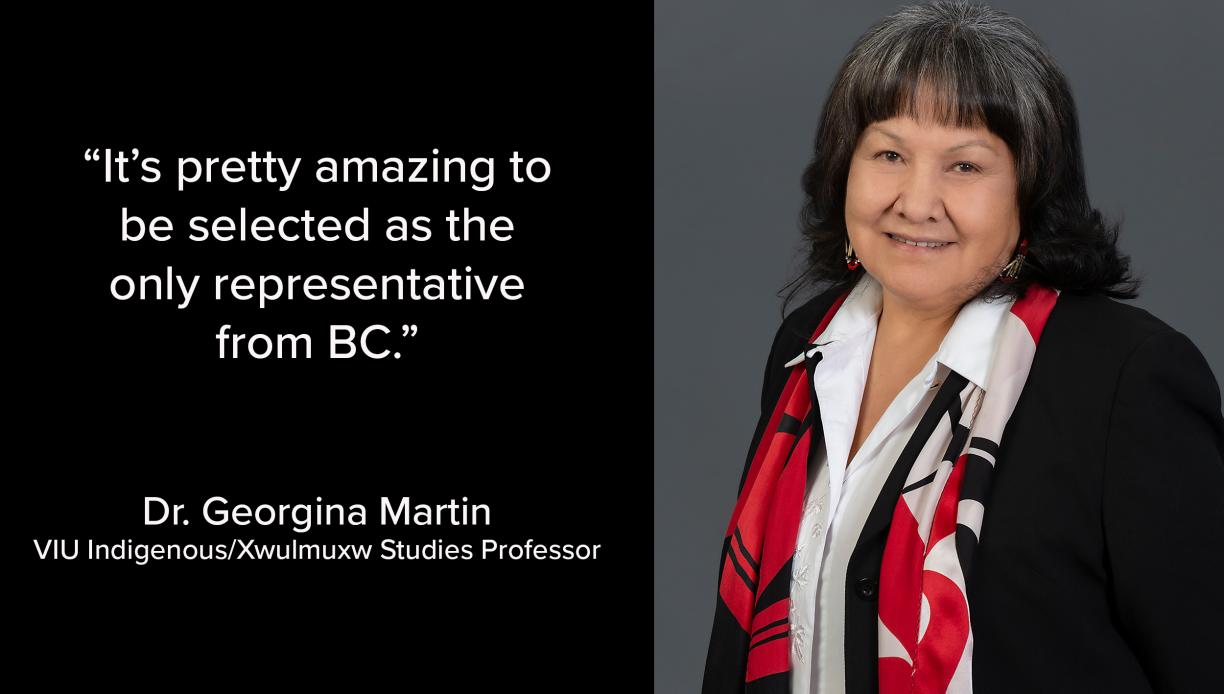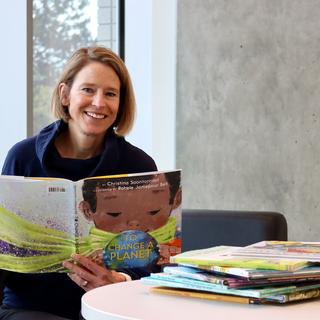Georgina Martin is the only BC representative to be elected to a national group responsible for providing direction on building mutually respectful relationships between Indigenous communities and researchers.
Dr. Georgina Martin, a VIU Indigenous/Xwulmuxw Studies Professor, has been elected to a newly established, national group for the culturally appropriate review of Indigenous research and is the sole BC representative.
Eighteen individuals were selected for the Tri-agency reference group to provide advice and guidance on the “development and implementation of culturally appropriate review approaches and practices for research conducted by and with First Nations, Inuit and Métis Peoples.” The Tri-agencies is comprised of the Canadian Institutes of Health Research; the Natural Sciences and Engineering Research Council of Canada; and the Social Sciences and Humanities Research Council.
“This is helping them start a new direction to support Indigenous research and research training. I think it’s pretty amazing to have been selected as the only representative from BC,” says Martin, adding that because of how research was conducted in the past there are feelings of fear and mistrust of researchers and research. “Historically, researchers would go into a community and take the information they needed. They wouldn’t give anything back to the community and would use the information for their own advancement or advancing the needs of their organization.”
She said the reference group is addressing the need for a shift in working with Indigenous communities and building relationships of mutual respect.
“There needs to be a shift in working with Aboriginal communities so that they’re feeling like researchers are conducting research with them, not about them. It’s about being highly respectful and working alongside the community,” says Martin, adding that it’s important to go into Indigenous communities with a “good heart and a good mind” with the aim to support, understand what communities want and give back.
Martin says establishing relationships of respect, reciprocity and responsibility when working with Indigenous communities and understanding the issues and concerns is integral. It’s a perspective Martin brings to her own community-based research. She says growing up in her home community of T’exelc has grounded her understanding of the issues and concerns at a community level.
“I understand the apprehension of Indigenous people in communities to get involved in research,” she says. “In my previous research work I tried really hard to look at things from the community’s perspective. A level of trust with Indigenous people is paramount.”
The reference group is an important step in the Tri-agencies’ strategic plan, which was a response to the Truth and Reconciliation Commission of Canada’s call to establish new relationships with Indigenous peoples. The plan has three main objectives: building new relationships with First Nations, Inuit and Métis peoples; co-development of new models for Indigenous research and research training; and a coordinated approach to achieve greater harmonization, integration and coordination of research and research-related programs and policies.
-30-
MEDIA CONTACT:
Rachel Stern, Communications Officer, Vancouver Island University
C: 250.618.0373 l E: Rachel.Stern@viu.ca | T: @VIUNews





